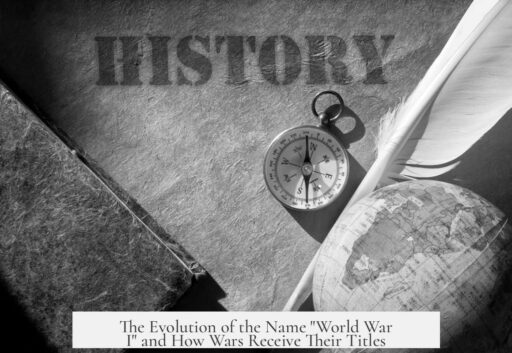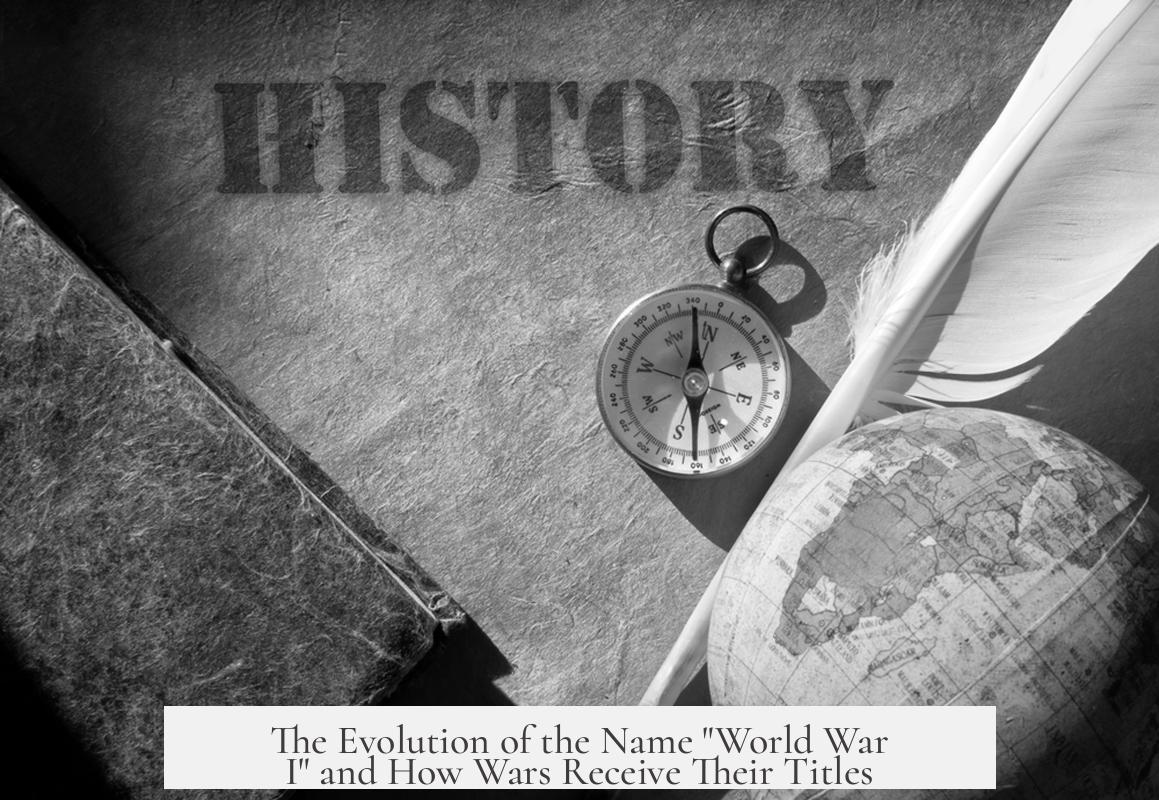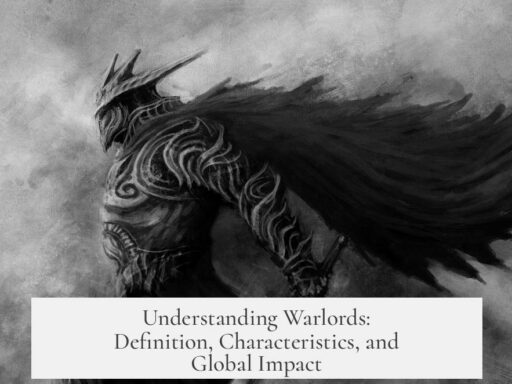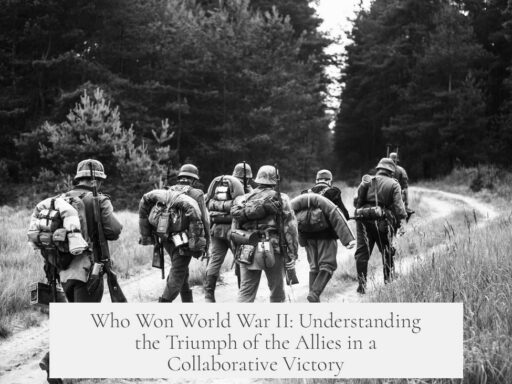The name “World War I” was given to the conflict before World War II began, around 1918, reflecting an early recognition of its global scale. Initially, it went by names such as “The War,” “The Great War,” or simply “The World War.” However, the term “World War I” emerged from discussions among contemporaries seeking a label that fit the conflict’s unprecedented magnitude and lasting impact.
Lieutenant-Colonel Charles à Court Repington, a British officer and war correspondent, documented a pivotal moment in this naming process. On September 10, 1918, he met with Major Johnstone of Harvard University. They agreed that the war could no longer be called merely “The War” or “The German War,” the latter being too flattering to the enemy. Repington proposed “The World War” as a more apt title, ultimately leading to “The First World War.” This was intended to emphasize the scale of the global conflict and to remind future generations that war shaped world history.
Throughout the interwar period, the conflict was most commonly called “The Great War.” In Europe, this name persisted for decades. In the United States, people often referred to it simply as “The World War.” The term “World War I” was not widely used until after the start of the Second World War. As that conflict unfolded, the need to distinguish between the two global wars became clear. The earlier global conflict thus became formally rebranded as “World War I,” while the ongoing one was called “World War II.”
This period marks a turning point in war nomenclature. Before the 20th century, wars rarely had universally accepted names. They often carried multiple labels based on local perspectives or political motives. For example, the American Civil War is known by different names depending on regional views, such as “The War Between the States” or “The War of Northern Aggression” in parts of the former Confederacy. This diversity shows how war names reflect the politics and sentiments of their times.
Many historical wars bear various names based on which side writes the history or public opinion. The War of 1812, particularly in New England, was called “Mr. Madison’s War” due to regional opposition. War declarations and peace treaties were seldom universal. They often involved staggered engagements and agreements among multiple governments, making naming complex.
Because wars often consist of many related but distinct conflicts, there can be no single, immediate name. Only over time does a consensus name emerge, usually influenced by the victorious side or prevailing historical interpretation. The label “World War I” thus embodies a retrospective understanding shaped after the fact, as well as a practical distinction from the second global conflict.
| Time Period | Common Name(s) | Reason/Context |
|---|---|---|
| 1914–1918 | The War / The Great War / The World War | During the conflict, it was simply “The War” or “The Great War” as the scale was unprecedented. |
| September 1918 | The First World War (suggested) | Repington and Johnstone discuss naming it to prevent forgetting and distinguish future conflicts. |
| 1918–1939 | The Great War / The World War | Common terms used, especially “The Great War” in Europe and “The World War” in the US. |
| Post-1939 | World War I and World War II | Following the outbreak of WWII, the earlier conflict became “World War I” for clarity. |
When do wars get their names? The answer varies greatly. Wars often lack immediate or universally agreed names, especially in earlier history. Naming depends on many factors:
- Political Influence: The victor or dominant powers tend to name wars officially.
- Regional Perspective: Names reflect local attitudes and agendas, sometimes leading to multiple competing titles.
- Historical Retrospect: Names may only settle decades later as public consensus forms.
- Chronological Context: Names change to clarify distinctions with future wars, as seen with World Wars I and II.
War names can reveal much about how societies understand conflict, national narratives, and historical memory. While some conflicts carry a single well-known title, many possess multiple names reflecting differing viewpoints. “World War I” represents one of the earliest examples of a war being named promptly with a global perspective in mind, even before its sequel had begun.
- “World War I” was proposed in 1918 to distinguish it from future conflicts.
- The war was commonly called “The Great War” until WWII began.
- War names often reflect political agendas and regional interpretations.
- Official war names frequently emerge after conflicts conclude and history is written.
- Multiple names for wars are common, highlighting differing historical narratives.
When Was World War I Given the Name “World War I” and How Do Wars Get Their Names?
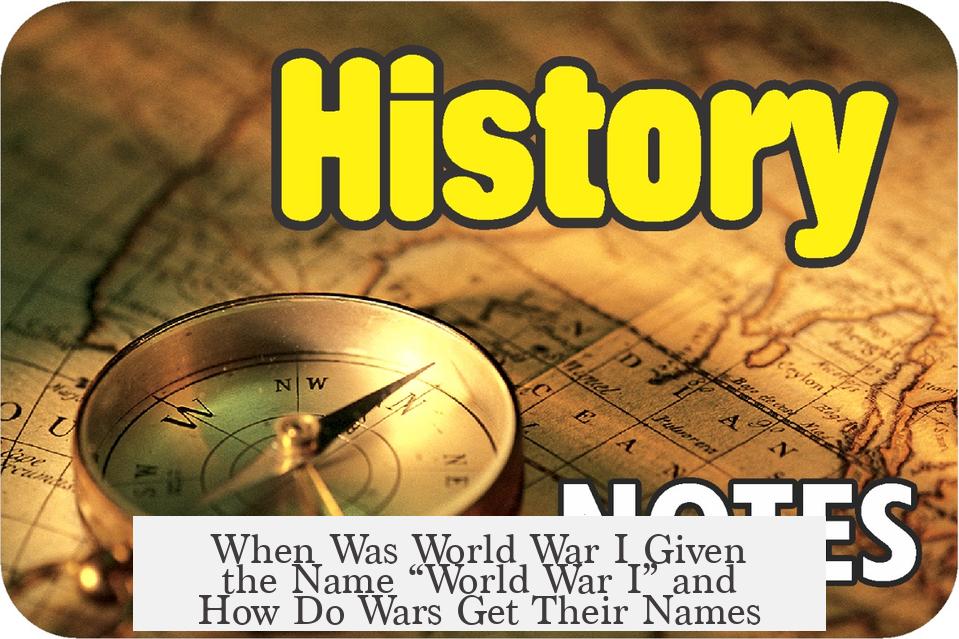
World War I was actually called “World War I” before World War II even began. Yes, despite what many think, the name didn’t originate after the second global conflict kicked off. In fact, the label “World War I” was coined in 1918, while the war was still raging (or just winding down).
This might surprise you. So, how did a war become WORLD WAR I before there was a World War II?
The Birth of the Name “World War I” – A Diary and a Harvard Major
Lieutenant-Colonel Charles à Court Repington, a British officer, captured the naming moment. On September 10, 1918, he wrote in his diary about a meeting with a Major Johnstone from Harvard University. They debated what to call the war, since everyone just called it “The War” (which would get confusing later, right?).
“Calling it The German War was too much flattery for the Boche,” Repington noted, referring to the German troops with a nickname that essentially means “rats.”
They landed on “The World War” as a better title. But to ensure history remembered this as just the first of its kind, they agreed to call it “The First World War.”
Talk about a practical conversation over a cup of tea—or maybe stronger drink! Their main goal was to remind future historians that world history often revolves around war. Spoiler alert: they were right.
Names Between and After the Wars: Great War, The World War, and WWI
Before the second world war caught everyone off guard, most people referred to this huge conflict as “The Great War.” Ironically, that name originally referred to the Napoleonic Wars back in the early 1800s. Over in the US, calling it “The World War” caught on.
| Time Period | Common Names | Location |
|---|---|---|
| During WWI | The War, The Great War, The World War | Europe and United States |
| Between WWI & WWII | The Great War, The World War | Mostly Europe and US |
| After WWII | World War I, WWI | Globally |
After World War II began and eventually ended, people needed to tell the two apart. The war we now call WWI lost the “Great” in its title and became “The First World War,” while the new conflict was dubbed “The Second World War.”
So, When Do Wars Get Their Names?
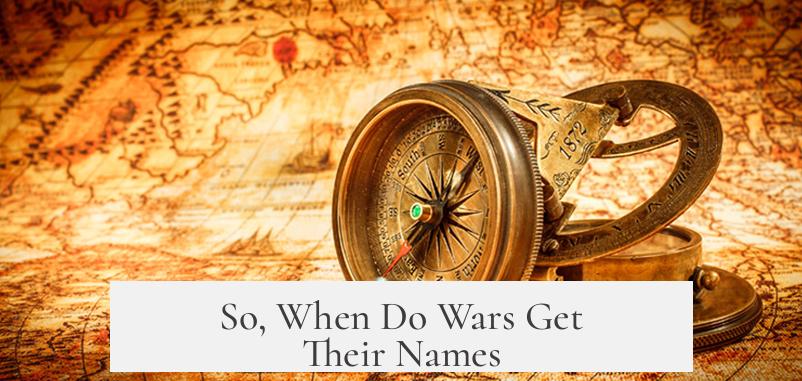
Turns out, wars rarely get neat, agreed-upon names right away. Naming a war isn’t like giving a baby its name at birth. It’s often messy and political, and sometimes no single name wins out for decades—or ever.
For example, consider the American Civil War. Depending on where you are in the US, the war is called “The Civil War,” “The War Between the States,” or, more controversially, “The War of Northern Aggression.” How’s that for political branding?
Even smaller, regional conflicts can have different names based on who’s telling the story. The War of 1812 is called “Mr. Madison’s War” in parts of New England, where opposition to the war ran high. This underscores how local perspective shapes naming conventions.
Factors Influencing War Names
- Multiple Names Are Common: No war has only one name universally accepted, especially before the twentieth century.
- Political and Regional Agendas: Names often reflect the viewpoint of specific groups or winners.
- Lack of Unified Declarations: Wars rarely involve all parties declaring or ending the conflict simultaneously.
- Winning Side’s Influence: Usually, the victorious side’s chosen name sticks around in history—but only after public preference settles matters.
Why Does This Matter?
Understanding when and why wars get their names reveals deeper truths about history. It’s not just about labels; it’s who controls the narrative. What we call a war shapes how we remember it and who gets blamed or praised.
Next time someone asks why World War I is called “The First World War” when it happened before the second, you’ll know the answer stretches back to a 1918 conversation. It was a mix of practical foresight and a touch of dark humor—to make sure people never forget the brutal history of world conflicts.
In short, war names evolve with history, politics, and the ever-changing human story. Don’t expect a neat label right after the shots are fired.
Have you ever wondered why some wars are called “The Great War” while others have dozens of names? The next time you hear about any conflict, consider whose perspective shaped its title. Names matter, and sometimes, they tell more about the winners and losers than the war itself.
